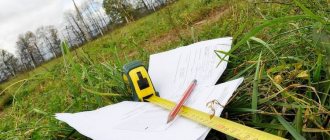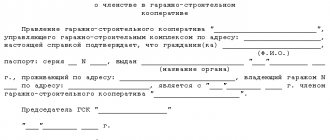Author of the article: Lina Smirnova Last modified: January 2021 5045
Every person at a certain stage of life begins to think about who he will leave his property to after he passes away. Any property can be inherited, as well as intellectual property, bank deposits and other items of certain value. Most people's main inheritance is their real estate. This includes apartments, houses, land plots and other buildings that belonged to the deceased person. These objects can be passed on to heirs, both by law and by will.
To ensure that the successors under the testator's will do not have difficulties when registering real estate as their own, the will for the house and land must be drawn up correctly, taking into account all the features established by law. Let us consider what requirements the law imposes on the testator himself, as well as on his drawing up an order for the transfer of a residential building and land plot to the heirs after death.
Methods of inheritance distribution
In the absence of an administrative document, the property of the deceased is distributed among relatives on the basis of Art. 1141 of the Civil Code of the Russian Federation. According to the law, values are divided between the heirs of each of the 8 lines, and the next line cannot claim its rights if there are representatives of the previous one, and the shares of inherited property are equal for members of one line. Children, spouses, parents, and descendants of children by right of representation have advantages over all heirs.
The order of inheritance can only be changed by making a will. This right is enshrined at the legislative level in Art. 1119 of the Civil Code of the Russian Federation.
A will is an act of the unilateral will of a citizen, establishing the procedure for civil legal relations in the event of his death.
The claimants to the property specified in the document are the heirs, and the owner of the distributed benefits is the testator. The latter can dispose of property the owner of which is or plans to acquire (Article 1120 of the Civil Code of the Russian Federation): an apartment, a house, a car, a plot of land, money in a bank, and other valuables.
Unlike inheritance by law, in the case of drawing up a will, the heirs may be persons who do not have family ties with the owner of the valuables, private or public organizations.
Who gets residential real estate and land?
Only the owner of a residential building has the right to bequeath it to someone else . According to Part 2 of Art. 1119 of the Civil Code of the Russian Federation, after death property:
- goes to one heir whose name is indicated in the will;
- divided among several heirs. Each person's share must be specified in the will;
- can be given into the hands of the state or a private organization.
IMPORTANT: a citizen can disinherit all his potential heirs. The exception is people who must inherit an inheritance according to the law (from the same article 1119).
These include:
- children under 18 years of age.
- Disabled spouse.
- Disabled parents.
- Dependents. These include a person, not necessarily a relative, who lived with the author of the will for at least one year (before death) and was his dependent.
Who cannot be excluded from the number of heirs
When drawing up a will, it is necessary to take into account that there is a group of persons who have the right to an obligatory share in the inheritance. Citizens included in the category of socially vulnerable include:
- minor children (under 18 years of age);
- people of retirement age, as well as children who are not working, but are receiving a specialty in full-time education and have not reached the age of 23;
- disabled citizens who are dependent on the owner of the goods and live with him in 1 territory for at least 1 year.
Such groups of persons are entitled to at least ½ share of the property that they would receive upon inheritance by law.
Example. Citizen N. drew up a will, according to which the house was to be inherited by his partner T. Since N. had a minor child, in accordance with Art. 1149 of the Civil Code of the Russian Federation, the property was divided in this way: ½ of the house went to T., and ½ to the child.
In order for the document to be legal, you need to familiarize yourself with information on how to make a will for a house and land in a legally competent manner.
Time limit within which a will can be contested
It is important to know that the period is counted only from the date of death of the testator. Since this day is considered the day of opening of the inheritance. So to the question whether it is possible to challenge a will for a house after the death of the testator, the answer is clear: only after his death does the law allow such a possibility.
Life dictates its own rules, and therefore a successor whose rights have been violated may not immediately find out about the will, or may not have the opportunity to file a claim for good reasons. In such cases, the court extends the terms of the challenge if the heir provides evidence confirming the impossibility of timely contacting the notary.
When challenging, we remember the deadlines established by law for filing a claim in court:
- 1 year from the day when a person became aware of a violation of the law on the validity of a will;
- 3 years from the day when the citizen became aware of the violation of his interests and rights by the will.
Registration procedure
First, you need to visit the notary’s office at your place of residence or, in case of limited mobility, call a notary at your home.
Required conditions for drawing up a will:
- The testator must be the sole owner of the property. You cannot inherit an extension to a house, or transfer a plot of land in its entirety, owning only part of it. Also, land plots issued with the right of perpetual use are not subject to inheritance.
- The capacity of the owner of valuables should not be questioned. You can only draw up a document with a strong memory and sound mind.
- At the time of preparation, the citizen must be 18 years of age.
You can write a will:
- on a computer, that is, in printed form;
- by hand.
The document is drawn up either by the owner of the property personally, or by a notary on his words. If a citizen cannot read what is written, the notary reads the document and indicates in it the reason why the testator did not do it personally (for example, blindness). To avoid suspicion of falsification, you can invite a witness. At the end, the signature of the testator, as well as the witness, indicating his full name and place of residence, must be placed.
The document contains the following information:
- place and date of compilation;
- complete information about the testator (full name, place of registration and place of residence, passport details: series, number, place of issue);
- text that lists the values and indicates the circle of heirs;
- information that the notary has given clarifications regarding Art. 1149 Civil Code of the Russian Federation;
- notarization (in the case of a closed will, the notarization is placed on a sealed envelope);
- number of copies;
- confirmation of payment of state duty.
Sample will for house and land
The will is drawn up in 2 copies, 1 of which is kept by the notary, and the second by the owner of the inheritance.
There is no need to fear pressure or dissatisfaction from potential heirs. The document will come into force only after death, and according to Art. 1130 of the Civil Code of the Russian Federation, its content can be partially or completely changed, without requiring anyone’s consent.
According to Art. 1123 of the Civil Code of the Russian Federation, the contents of the document are a secret, which is subject to disclosure only after the opening of the inheritance. The rule applies to a witness present when drawing up an act of unilateral will.
Documents for a will for a house and land
The testator is obliged to provide the notary with a passport. The notary has no right to demand confirmation of ownership of the specified property and valuables. However, in order to identify objects and avoid misunderstandings, it is additionally recommended to have with you:
- agreement of donation, exchange or sale of a house;
- certificate of state registration of real estate;
- confirmation of ownership of a land plot with a cadastral plan reflecting the location of communications;
- a certificate of the inventory value of the property taken from the BTI;
- a certificate confirming that the testator was not officially married at the time of acquisition of the property, otherwise ½ of the property is the property of the legal spouse;
- a certificate of mental health, which will prevent the will from being invalidated in the event of disputes between the heirs.
The testator can inherit a dacha with a plot, and it is necessary to provide documents taken from the BTI: cadastral extract and plan, certificate of ownership and calculation of the cadastral value of the land plot and buildings.
The notary may recommend attaching additional documents to facilitate the process of transferring real estate after the opening of the inheritance.
Is it possible to bequeath land without a house?
Bequeathing a house without land or land without a house confuses heirs, and sometimes conflict situations cannot be avoided. In such cases, the owner of the property is illogical, but the court takes the side of the testator and does not recognize the document as invalid.
A house and a plot of land, even if they are inextricably linked, are independent real estate objects. Various certificates are issued for them in Rosreestr. If one of the items is specified in the will, this means that the other can be divided among the heirs.
According to paragraph 5 of Art. 1 of the Land Code of the Russian Federation, land plots are firmly connected with objects, and their transfer occurs together with such objects, however, at the legislative level there is no obstacle to the simultaneous ownership of land and a house by different people. In such cases, it is better to resolve the issue peacefully and offer to compensate for the cost of part of the inheritance in exchange for receiving ownership rights. If an agreement fails, a “private easement” under Art. 274 of the Civil Code of the Russian Federation, that is, a limited right of use.
Important! If the house is located on a plot of land, it is recommended that they be inherited by one citizen.
Example. The father bequeathed a house to his son. The act of last expression of will did not say about the son's inheritance of the land plot. After the death of his father, the son became the owner of the house, and the father’s 2 daughters from his first marriage declared the right to inherit the land, therefore, in accordance with the rules of inheritance by law, they each received ½ of the land plot.
Correct drafting of a will
A testamentary disposition must be drawn up in accordance with the law. Before you draw up a will for a plot of land and a house, you need to understand the main nuances of the document:
- Only property that is owned by the testator can be included in the document.
- A citizen does not have the right to dispose of the property of a co-owner or spouse.
- Since a plot of land and a house are different real estate objects, the testator needs to prepare documents for each of them.
- If a house or plot belongs to spouses, then after the death of one of them only that part that belonged to a particular citizen will be alienated.
- The obligatory share is allocated only if there is a will. If there is no order, then the compulsory heirs receive the property in order of priority according to the law.
Mandatory assignees include:
- minors;
- disabled spouse or dependents of the deceased;
- parents who have lost their ability to work.
The above persons cannot be deprived of a share in the inheritance. If the testator has not taken into account the interests of the obligatory heirs, then their rights can be protected in court. Filing a claim is also required if the successors in the will oppose the allocation of obligatory shares.
The heir is given 10 days to go to court. Claimants under the will have the right to file a counterclaim.
Sample will
The legislation does not provide for a specific form of the document. Each notary may have his own sample order. The main thing is that the will contains the following information:
- Name;
- date and place of compilation;
- personal data of the testator (including passport);
- list and description of alienated objects;
- indication of applicants with distribution of shares and type of inherited property;
- registration number;
- testator's signature.
Registration procedure
The document is drawn up in a notary office. The specialist's responsibilities include:
- establishing the identity of the testator and confirming his legal capacity;
- clarification of rights and responsibilities;
- assistance in drawing up orders;
- explanation of legal consequences;
- checking the provided will (if the citizen drew it up independently);
- calculation of the amount of state duty and issuance of details for its payment;
- entering data into the state cadastre.
Procedure
The algorithm of actions of the testator is determined by law and contains the following stages:
- Preparation of documentation for property.
- Determination of the circle of heirs and the size of the shares of each of them.
- Drawing up a testamentary document.
- Contacting a notary.
- Payment of state duty.
- Waiting for the notary to certify the order.
Once the will is ready, it can be passed on to the heirs.
What documents are required
To register a will for a house and land, you will need the following papers:
- Testator's passport.
- Technical and title papers for real estate. This could be a purchase and sale agreement, an exchange agreement, or a certificate of inheritance. You will also need a cadastral passport.
- Certificate of absence of debts.
- Receipt for payment of state duty.
- An extract from the Unified State Register of Real Estate, which confirms the absence of encumbrances.
- List of heirs. The name and address of each successor are indicated.
Price
The process of registering a will involves paying a state fee of 100 rubles. In addition, the testator pays for notary services. The commission for a specialist’s work depends on the following factors:
- personal rates;
- average cost of services in the region.
Deadlines
Citizens of the Russian Federation have no restrictions on the time limits for drawing up wills. The document can be drawn up at any time by contacting a notary. The same applies to making amendments: the testator can change the content of his order as much as he likes or even delete it altogether.
After the death of the testator, making amendments to the will is considered illegal. The heirs can only challenge the validity of the document. But to do this they will have to go to court.
Now let's talk about the validity period of the will itself. The document becomes valid after the death of the testator. Once he dies, his successors have six months to file documents with the notary. If this deadline is missed, it will not be possible to enter into inheritance rights.
Ways to challenge a will
It is possible to challenge a will after the death of the testator (Article 1131 of the Civil Code of the Russian Federation), if there are good reasons for this, and not resentment or a sense of injustice. A will may be declared invalid or changed taking into account the interests of other citizens in the following cases:
- the interests of socially vulnerable citizens who have the right to an obligatory share of the inheritance were not taken into account;
- writing took place under threat of physical harm;
- the heirs were declared unworthy (Article 1117 of the Civil Code of the Russian Federation);
- during the preparation, a number of errors and violations were made, for example, the document was not drawn up personally by the testator without compelling reasons; signed by an incapacitated person with a mental disorder, which must be confirmed by appropriate medical certificates; the document contains the will of several persons.
A period of 3 years is given to challenge a void will. If threats were made against the originator, this period is reduced to 1 year.
A will for a house and land is drawn up to ensure that the property is received by the people or legal entities specified in the document. However, in practice, ignorance of the laws threatens with incorrect interpretation of information about the distribution of values, making mistakes when drawing up a document, which can lead to its cancellation.
Lawyers from the site ros-nasledstvo.ru will tell you how to correctly draw up a will for a house and land so that the rights of the heirs are not infringed, relatives do not experience mutual hostility and do not go to court to restore justice.
FREE CONSULTATIONS are available for you! If you want to solve exactly your problem, then
:
- describe your situation to a lawyer in an online chat;
- write a question in the form below;
- call Moscow and Moscow region
- call St. Petersburg and region
Save or share the link on social networks
- FREE for a lawyer!
Write your question, our lawyer will prepare an answer for FREE and call you back in 5 minutes.
By submitting data you agree to the Consent to PD processing, PD Processing Policy and User Agreement
Useful information on the topic
46
Entry into inheritance after death under a will
The procedure and rules for entering into inheritance under a will are established by the chapter...
23
Lawsuit to restore the deadline for accepting an inheritance in 2021
The judicial hearing of the case on restoration of the period for accepting an inheritance begins with...
28
How to draw up a will for an apartment
The legislation of the Russian Federation establishes the right of every capable citizen to perform posthumous...
10
How to find out if there is an inheritance
The sudden death of the testator or lack of contact with other applicants may...
17
Mandatory share in the inheritance by will and by law (without a will)
The legislative act regulating civil law in the field of inheritance (section V...
15
Are loan debts inherited?
The short answer is YES, debts are inherited if the heir accepts the inheritance...
Judicial practice in cases of contesting a will
Judicial practice does not belong to the sources of Russian law, but the decision-making procedure is facilitated and made uniform by the Resolutions of the Plenum of the Armed Forces of the Russian Federation, including the Resolution of May 29, 2012 “On judicial practice in inheritance cases.”
The document explains the provisions of the Civil Code of the Russian Federation on inheritance, including real estate. Inheritance by will is covered in paragraphs. 22-27 Regulations.
You can consider the court’s position on various claims by studying the article “Examples of judicial practice in inheritance cases.”









